As the aroma of roasted chestnuts fills your home, you see your little furry dog and his puppy eyes. You want to treat him because he is a good boy! But, can dogs eat chestnuts?
Popular opinions and claims say that chestnuts are safe for your dog but there are disagreements too.
Read further to know in detail, if chestnuts are indeed safe for your furry little friend!
Can Dogs Eat Chestnuts?
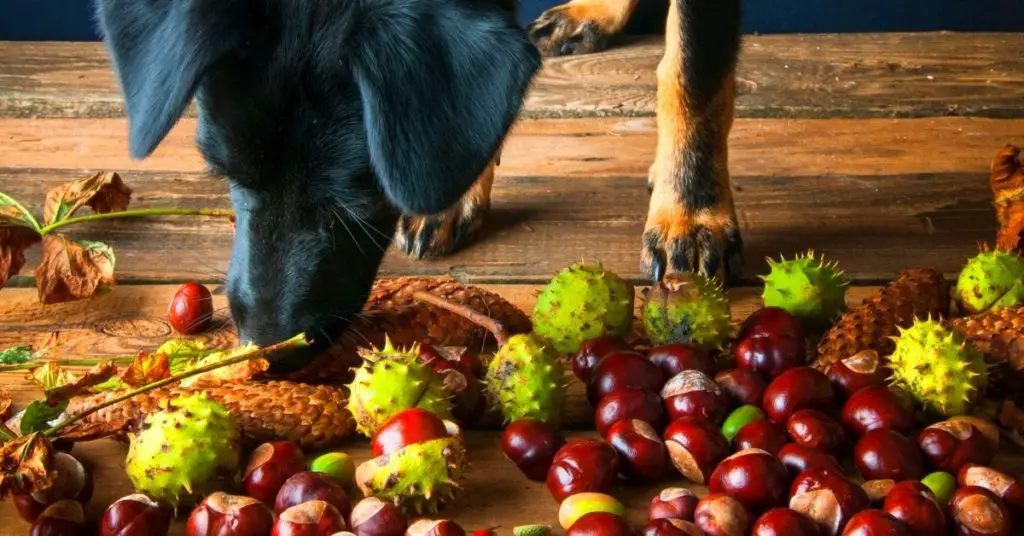
Dogs can eat chestnuts but in small and controlled amounts. If taken in limited amounts, chestnuts are not essentially toxic for your dog.
However, if chestnuts are consumed in large amounts by your dog, it can be dangerous, causing diarrhea and vomiting. A dog’s digestive system isn’t exactly made to ingest large amounts of chestnuts or any other nuts in general.
The rich amount of starch in chestnuts is difficult for dogs to digest and it can give them health problems.
On accidental intake of excessive amounts of chestnuts, you may see the following symptoms:
- Dehydration, causing frequent thirst
- Lethargy
- Diarrhea
- Vomiting
- Frequent urination
On noticing any adverse symptoms, provide your dog with immediate medical attention.
Chestnuts can be allergic to dogs, so remember to feed them just half a chestnut the first time. If your dog starts behaving strangely, immediately provide medical care, as your dog might be suffering from an allergic reaction.
How Many Chestnuts Can A Dog Eat?
You can give your dog a few slices of fresh chestnuts as occasional treats, but make sure to give it in controlled amounts, preferably just a slice or two.
While chestnuts are not poisonous for your dog, too much intake of these nuts can cause serious health problems for your dog.
Plain roasted chestnuts without any additives can also be given to your dog in moderate amounts.
What Are The Benefits Of Chestnuts?
In controlled amounts, chestnuts are beneficial to your dog’s diet as it is packed with 5 benefits: nutrients, vitamins, fatty acids, fiber, and minerals.
Chestnuts also contain huge amounts of fiber which is beneficial to your dog’s gut health. The omega fatty acids present in chestnuts are also essential to build the healthy body of your pet dog.
Studies have also proved the presence of antioxidants such as gallic acid and ellagic acid which can be beneficial to your dog’s health, protecting your furry friend from various diseases.
Can Puppies Eat Chestnuts?
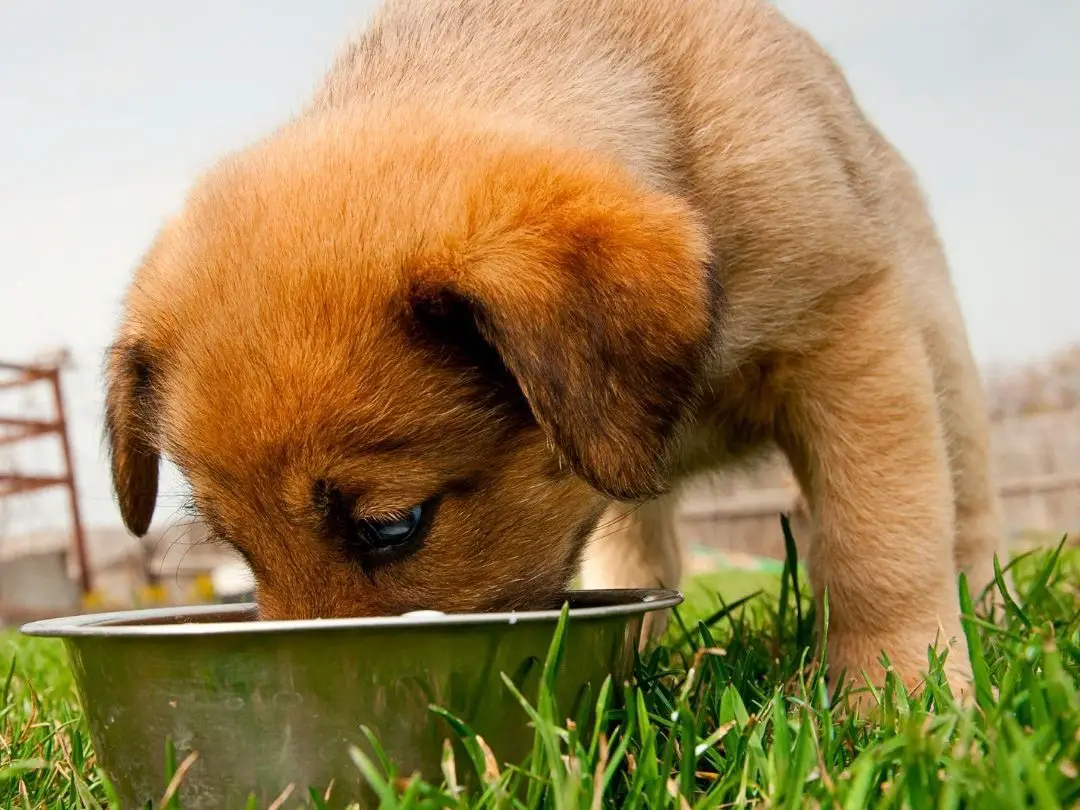
Puppies can eat chestnuts but remember to either mash them into a paste or chop up cooked chestnuts. Giving your puppy chestnuts as a whole can end up suffocating them or blocking their digestive tract.
Remember to feed your puppy very little amounts of chestnut. Also, keep an eye for any allergic symptoms that might show up in your little pup.
Puppies are at a huger risk of suffocating due to chestnuts, so always remember to chop up the cooked chestnuts or mash them up before feeding them to your puppy.
Can Dogs Eat Roasted Chestnuts?
The answer is yes. Your dog can eat controlled amounts of plain roasted chestnuts. However, do make sure they are plain roasted without any additives.
Common additives like salt in roasted chestnuts can be harmful to your dog and can cause various health problems due to excess sodium.
Remember to feed your little furballs of happiness bite-sized chestnuts by cutting up the cooled roasted chestnuts for easier consumption.
Can Dogs Eat Cooked Chestnuts?
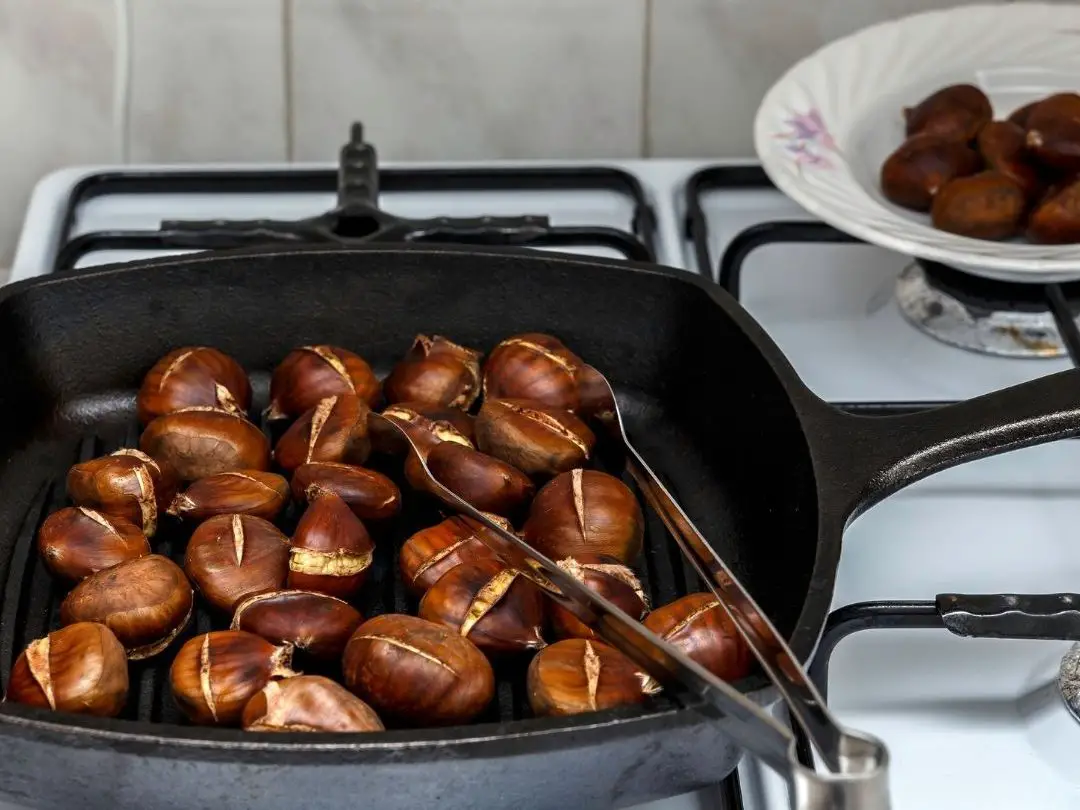
Cooked chestnuts are another ideal way to feed your dog some delicious chestnuts. Although roasted chestnuts are not essentially harmful to your dog, cooked chestnuts are easier to ingest and digest.
Make sure to peel off the chestnut’s skin before you boil them and smash them to make a nice paste for your pet dog. Also, be careful not to add any seasonings or artificial flavor enhancers when cooking the chestnut for your dog.
Can Dogs Eat Raw Chestnuts?
It is not advisable to feed your dogs raw chestnuts because they may contain tannic acid. This can cause stomach issues and other discomforts for your dog. It is better to feed your dog cooked chestnuts.
Besides, raw chestnuts can choke your dog if eaten as a whole. Always make sure to remove the peel before you feed your dog chestnuts.
Conkers, the seed of a horse chestnut tree, can be poisonous for your dog. It can also cause a blockage in your dog’s throat or digestive system, either causing suffocation or digestive problems.
It is advised to take your pup to the vet if they start behaving strangely after the consumption of raw chestnuts.
Can Dogs Eat Sweet Chestnuts?

Your dog can eat sweet chestnuts. However, it should be in controlled amounts only. Do make sure to cook them well before feeding them to your pup.
Excess intake of chestnuts can cause health problems in your dog. The starch content in these nuts is high and this can disturb your dog’s digestive system since they are not made to digest large amounts of starch.
How Do You Cook Chestnuts For Your Dog?
A tasty method to cook dog-friendly chestnuts is to peel the chestnuts, boil them, mash them and add them to your pup’s regular diet.
Peeling the chestnuts is important so that your dog does not choke on the skin of the chestnuts. Also, boiling the chestnuts before mashing them will make it easier to turn them into a paste.
You don’t have to season the chestnut paste. It can be harmful to your dog. Just add the paste to your pup’s diet as it is.
Will Chestnuts Make A Dog Sick?
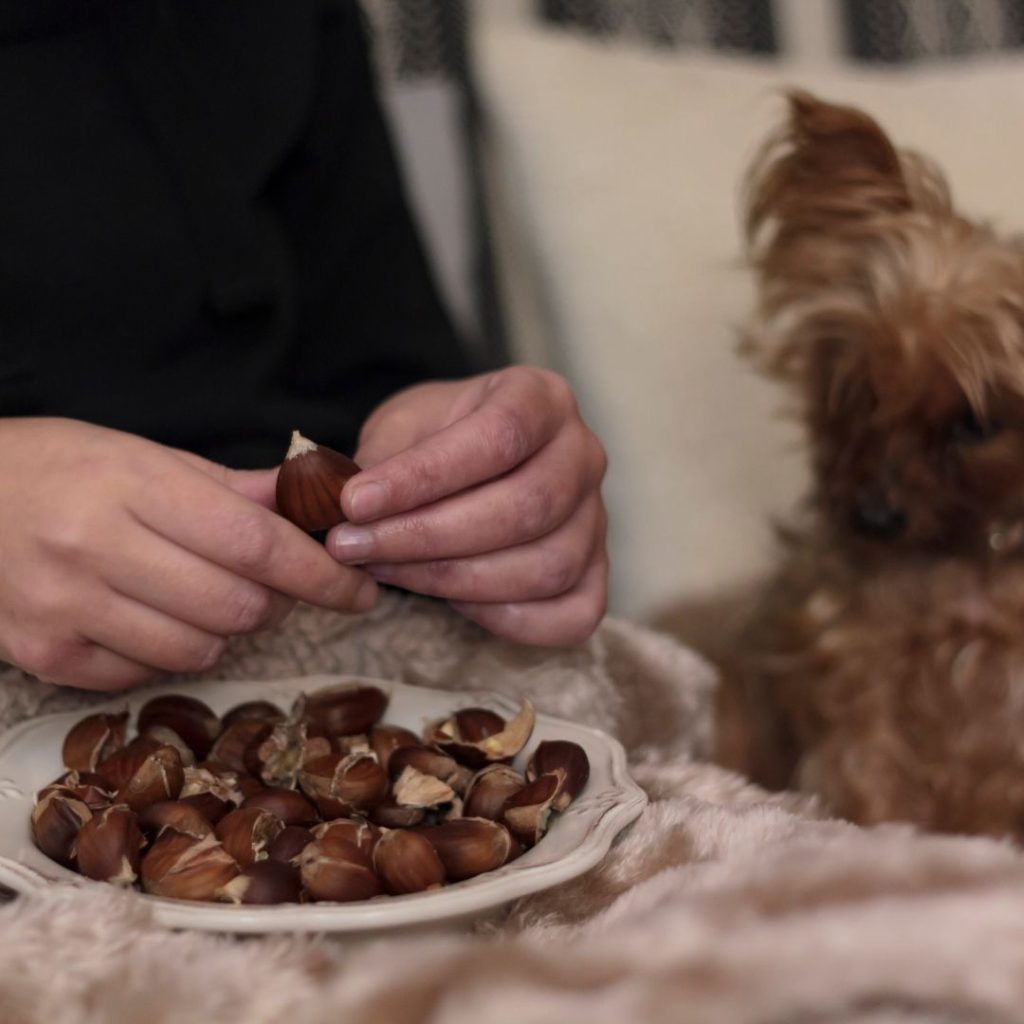
While chestnuts are not essentially poisonous for your dog, too much intake can cause health problems in your dog and make him fall sick.
Chestnuts can be given to your dog as occasional treats, in bite-sized amounts, and preferably cooked without any additives.
Do make sure to avoid conkers, as they can cause suffocation and other health complications in your dog.
Also Read: Are Water Chestnuts Healthy for Dogs?
Are Sweet Chestnuts Poisonous To dogs?
Sweet chestnuts are a type of edible chestnuts and they are not essentially poisonous to dogs. However, eating too many chestnuts can make your dog sick.
Treating your dog to a minimal amount of sweet chestnuts is okay, even beneficial. Chestnuts contain high amounts of omega 3 fatty acids and fiber which can be good for your dog’s health.
Too much intake of sweet chestnuts can cause digestive problems and other health problems. Whole chestnuts can even suffocate dogs.
So, you can feed your dog sweet chestnuts in small bite-sized amounts. However, refrain from feeding your dog too many of these, as it can make your dog sick.
Are Dogs Allergic To Chestnuts?
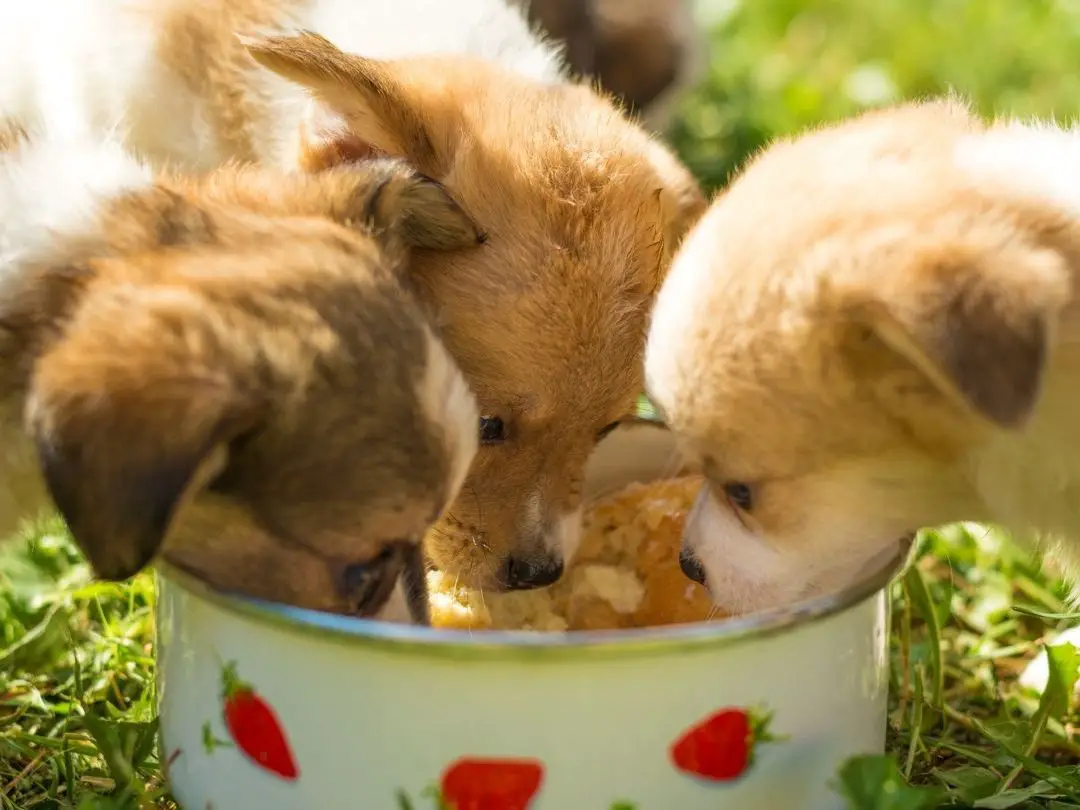
There are chances of dogs developing an allergy to chestnuts even if they had no problems having chestnuts in the past. Allergies are rare but they can happen in dogs.
Always feed your dog half a chestnut first. If the dog does not develop any strange behavior, you can take the liberty to feed your dog a little more. But not too much.
If your dog does develop any strange behavior that could be symptoms of allergy, immediately visit the vet.
You can learn more about the signs, causes, and treatments of allergies in dogs here.
Can Dogs Eat Horse Chestnuts?
Horse chestnuts are a hard pass. Do not feed your dogs the seeds from the horse chestnut tree, also called conkers.
Conkers are huge nuts and they can cause suffocation or blockage in your dog’s digestive tract. Moreover, conkers and almost every part of the horse chestnut tree contain a chemical called aesculin which is extremely toxic to dogs.
If your dog ingests a conker and poisoning takes place, your dog will show restlessness due to discomfort and pain. Your dog can also develop symptoms like diarrhea, vomiting, and collapsing.
It is also said that ingesting conkers can lead your dog into experiencing respiratory paralysis which can eventually lead to death.
If your dog shows any sign of discomfort or if you are doubtful as to whether your dog has ingested a conker, immediately visit a vet.
Also Read: Can Dogs Eat Tapioca or Bubble Pearls?
Are Chinese Chestnuts Poisonous To Dogs?
Chinese chestnut trees produce edible chestnuts known as Chinese chestnuts. You can give it to your dog in a moderate amount.
Remember to remove the shell of the nuts before you feed them to your dog as it can cause blockage.
What Should I Do If My Dog Eats A Conker?
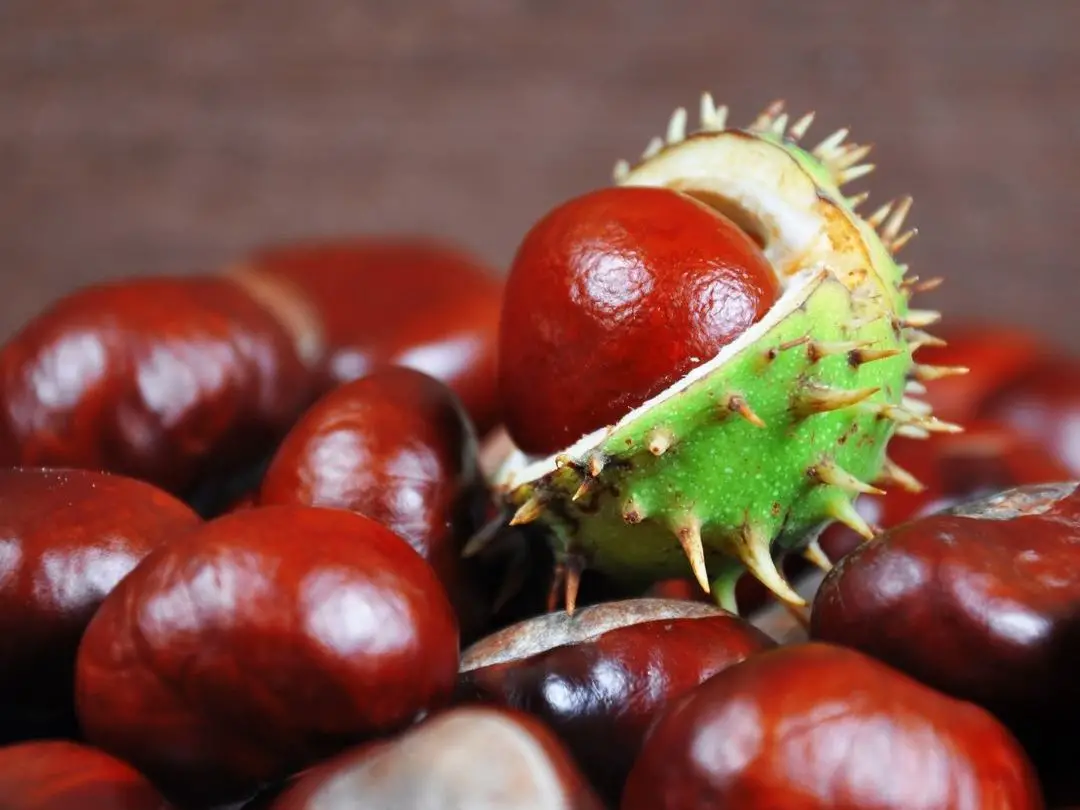
If you have doubts that your pet dog has eaten a conker, it is best advised to take your dog to the vet as soon as possible.
If you notice that your dog is behaving strangely, is restless, has diarrhea, or vomiting, immediately call the doctor and provide medical attention to your dog.
If your dog has swallowed a conker, consult a vet irrespective of the quantity of conkers ingested. Conkers can be extremely harmful to your dog, even a small amount can cause health issues.
Conclusion: Can Dogs Eat Chestnuts?
So the next time you see your dog sniffing at the aroma of roasted chestnuts and gives you the puppy eye, do not stop to wonder, ‘can dogs eat chestnuts?’
Instead, go ahead and give the good pup an occasional chestnut treat in controlled amounts, preferably mashed up or chopped into tiny pieces after cooking.
Either way, do not forget to remove the shells of the chestnuts as it can cause choking. Horse chestnuts are a big no-no.
Keeping these tips in mind, go ahead and give your puppy the nutty treat it deserves! Here’s one you can have your dog try- Gefen Organic Whole Roasted & Peeled Chestnuts.



